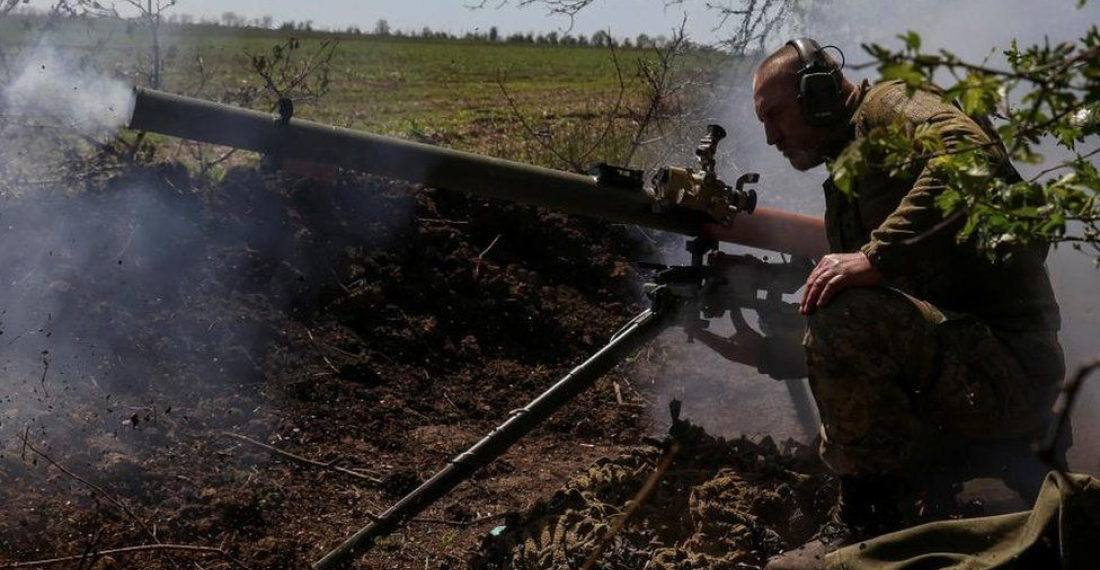Ukraine's Deputy Defense Minister Hanna Maliar has said on Friday (12 May) that Ukrainian forces have made advances in the embattled town of Bakhmut in the country's east. This follows statements from Russian military bloggers on the evening of Thursday (11 May) claiming that Ukraine had indeed made gains.
Speaking on Friday, Maliar said that Russian troops had "failed to implement their plans" and "suffered heavy losses of manpower" on the front line.
Despite this, in their daily update on Friday morning, the General Staff of Ukraine's Armed Forces reported that Russia continues to attempt offensive operations in the Bakhmut direction.
Ukraine's latest advance in Bakhmut was first reported on 10 May by Colonel General Oleksandr Syrskyi, the commander of Ukraine's Land Forces. In a video posted on social media, he said that Russian troops "could not resist the onslaught of the Ukrainian defenders and retreated to a distance of up to two kilometers".
Although the Ukrainian President Volodymyr Zelensky told the BBC in an interview yesterday that Ukraine "needed more time" before starting a counteroffensive, late on 11 May several Russian military bloggers alleged that Ukraine's counteroffensive had begun.
The Russian Defense Ministry denied this, saying "the general situation remains under control".
Meanwhile, CNN reports that Ukraine has started so-called "shaping operations" in preparation for its long-awaited counteroffensive. This involves attacking targets such as weapons depots, command centers, armored vehicles, and artillery systems to prepare the battlefield for the advancing force.
In the lead up to counteroffensives last summer in the east and south, Ukraine also conducted such operations. According to the U.S. military official speaking to CNN, these shaping operations could last for days before the main part of any planned Ukrainian offensive.






